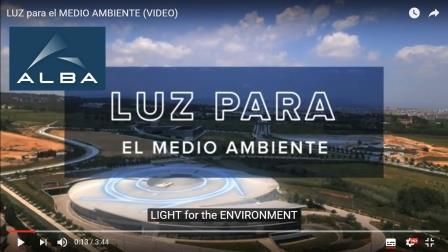
11/01/2017
El sincrotró ALBA, una eina al servei també del medi ambient
El sincrotró ALBA, una eina al servei també del medi ambient
Medi ambient, salut, alimentació, patrimoni cultural... Usuaris del Sincrotró ALBA ubicat al Barcelona Synchrotron Park, procedents d'universitats i centres d'investigació, expliquen en petites càpsules de vídeo d’uns 4 minuts com han utilitzat la llum de sincrotró i quins beneficis els aporta per a les seves investigacions.
El quart d'aquests vídeos, penjat a internet just abans de Nadal, se centra en aspectes mediambientals. Jordi Llorca, professor de la Universitat Politècnica de Catalunya (UPC), explica com l'estudi, disseny i producció de nous catalitzadors pot tenir un impacte positiu en el medi ambient. En aquest cas, ell i el seu equip han utilitzat la línia de llum CIRCE del sincrotró ALBA, una línia de llum de polarització variable de raigs X tous per a experiments avançats de fotoemissió.
Amb CIRCE, aquests investigadors han pogut analitzar la superfície i els processos d’actuació de nanopartícules catalitzadores en condicions molt properes a les condicions reals d’utilització. Aquests coneixements permetran dissenyar nous catalitzadors, en particular en dues línies de recerca que interessen Jordi Llorca i el seu equip: catalitzadors per a la producció d’hidrogen, d’una banda, i per a l’oxidació del sutge emès pels motors dièsels, d’altra banda.
Per veure la sèrie completa d’aquests vídeos divulgatius, es pot visitar el canal de Youtube del sincrotró ALBA. Els vídeos s'han gravat en castellà i català, però els subtítols, canviables amb la funció Settings, estan disponibles en anglès, català i espanyol, i en moltes altres llengües amb l’opció Auto-translate.
El quart d'aquests vídeos, penjat a internet just abans de Nadal, se centra en aspectes mediambientals. Jordi Llorca, professor de la Universitat Politècnica de Catalunya (UPC), explica com l'estudi, disseny i producció de nous catalitzadors pot tenir un impacte positiu en el medi ambient. En aquest cas, ell i el seu equip han utilitzat la línia de llum CIRCE del sincrotró ALBA, una línia de llum de polarització variable de raigs X tous per a experiments avançats de fotoemissió.
Amb CIRCE, aquests investigadors han pogut analitzar la superfície i els processos d’actuació de nanopartícules catalitzadores en condicions molt properes a les condicions reals d’utilització. Aquests coneixements permetran dissenyar nous catalitzadors, en particular en dues línies de recerca que interessen Jordi Llorca i el seu equip: catalitzadors per a la producció d’hidrogen, d’una banda, i per a l’oxidació del sutge emès pels motors dièsels, d’altra banda.
Per veure la sèrie completa d’aquests vídeos divulgatius, es pot visitar el canal de Youtube del sincrotró ALBA. Els vídeos s'han gravat en castellà i català, però els subtítols, canviables amb la funció Settings, estan disponibles en anglès, català i espanyol, i en moltes altres llengües amb l’opció Auto-translate.
Més notícies
20/08/2014
SENER tanca l’acord amb l’ESA per a la missió Proba-3 en la que actua com a contractista principal
06/08/2014
L’Institut Català de Nanociència i Nanotecnologia rep l’acreditació Severo Ochoa
30/07/2014
Barcelona entre les 10 primeres ciutats del món
24/07/2014
Demostren amb llum de sincrotró l'eficiència d'un nou fàrmac contra la malària
17/07/2014
Creació del Clúster de Tecnologies de la Salut
10/07/2014
Un equip internacional liderat per investigadors de la UAB, crea la primera fibra magnètica del món









